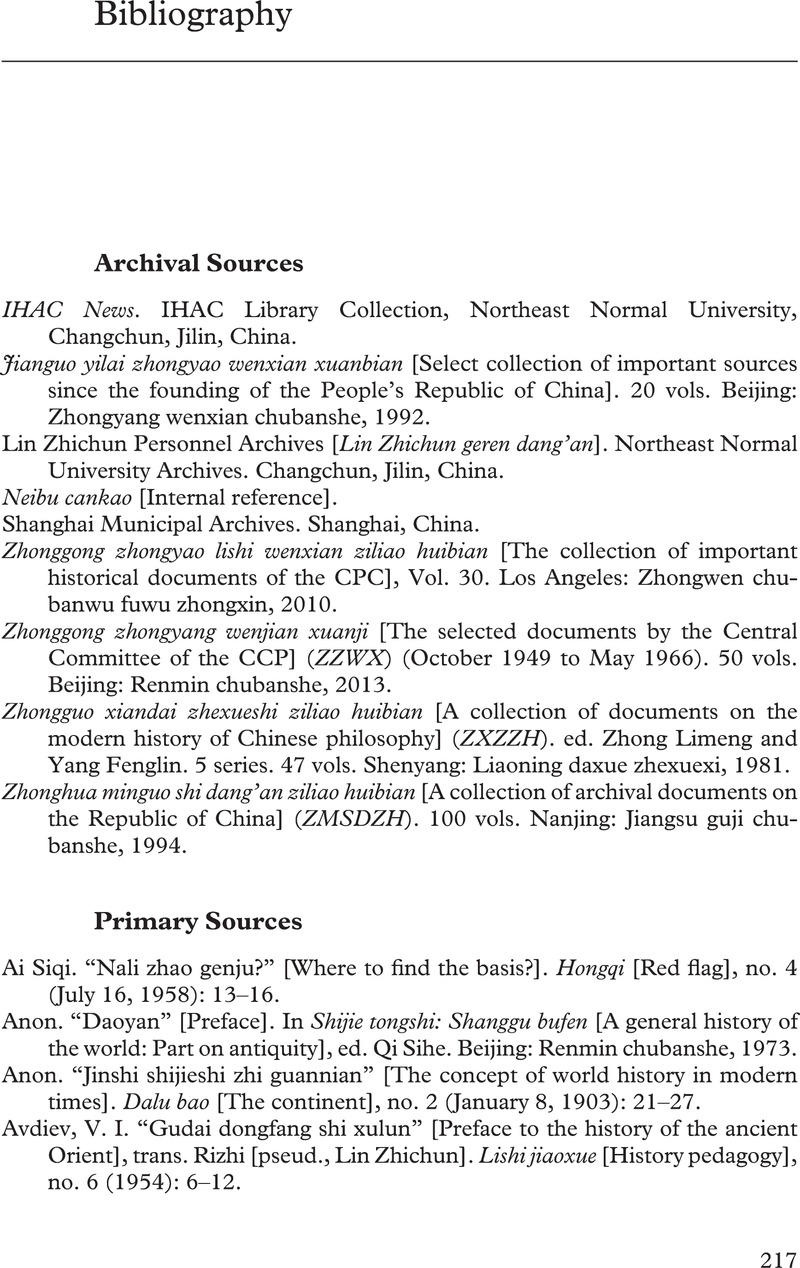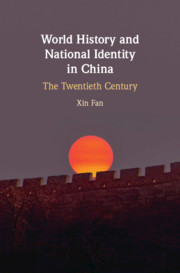Book contents
- World History and National Identity in China
- World History and National Identity in China
- Copyright page
- Dedication
- Contents
- Figures and Tables
- Preface and Acknowledgments
- Introduction: Control and Resistance
- 1 The Confucian Legacy
- 2 The Cultural Destiny
- 3 Becoming the “World”
- 4 The Forced Analogy
- 5 Imagining Global Antiquity
- Conclusion: World History and the Value of the Past
- List of Characters
- Bibliography
- Index
- References
Bibliography
Published online by Cambridge University Press: 19 February 2021
- World History and National Identity in China
- World History and National Identity in China
- Copyright page
- Dedication
- Contents
- Figures and Tables
- Preface and Acknowledgments
- Introduction: Control and Resistance
- 1 The Confucian Legacy
- 2 The Cultural Destiny
- 3 Becoming the “World”
- 4 The Forced Analogy
- 5 Imagining Global Antiquity
- Conclusion: World History and the Value of the Past
- List of Characters
- Bibliography
- Index
- References
Summary

- Type
- Chapter
- Information
- World History and National Identity in ChinaThe Twentieth Century, pp. 217 - 240Publisher: Cambridge University PressPrint publication year: 2021



